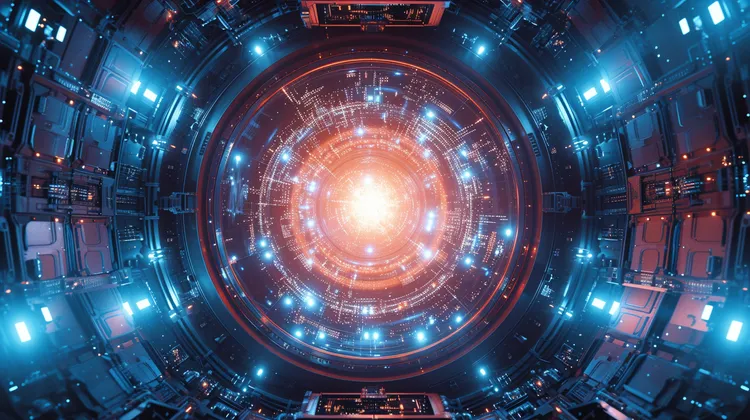
Nuclear Fusion: Revolutionizing Artificial Intelligence
A groundbreaking physics achievement that could lead to the development of nuclear fusion reactors capable of producing unlimited energy has successfully passed its official peer-review. The team of researchers at the U.S. National Ignition Facility (NIF) in California announced on December 5, 2022, that they had achieved a nuclear fusion reaction that generated more energy than it consumed. This exciting breakthrough could potentially pave the way for future technologies that eliminate our reliance on carbon energy and revolutionize fields like artificial intelligence and quantum computing.
The term “free lunch” is often used colloquially in physics to describe a situation where a nuclear fusion reactor could produce nearly limitless energy. Extraordinary claims require extraordinary evidence, and the news of this breakthrough was met with cautious optimism by the physics community. They recognized the need for peer-review before fully embracing the findings and declaring success.
Now, the peer-review process has been completed, and multiple teams have confirmed and replicated the results. Recreating the experiment was no easy task. The NIF scientists achieved the fusion reaction by utilizing a technique called inertial confinement fusion, which involves bombarding heavy hydrogen atoms with lasers to create extreme temperatures and pressure. This breakthrough, confirmed through peer-review, could serve as a foundational platform for the construction of practical fusion reactors.
While it is still uncertain when a viable fusion reactor will be achieved, the development of such a technology holds immense promise for future energy sources. Once fusion reactors become a reality, the availability of next-generation energy could catalyze advancements in various fields, such as artificial intelligence and quantum computing. These areas face significant energy limitations, and the removal of these obstacles could lead to substantial progress.
Sam Altman, CEO of OpenAI, has emphasized the importance of fusion energy in building advanced AI systems. He believes that without a breakthrough in fusion, it will be impossible to develop the AI systems of the future. The NIF team’s work could be the crucial first step toward realizing this revolutionary technology. Altman’s personal investment in a private fusion company further highlights the significance of fusion energy for OpenAI.
The successful peer-review of the NIF team’s nuclear fusion breakthrough is a significant milestone. It provides evidence that practical fusion reactors may be within reach, offering the potential for unlimited energy and advancements in various industries. While there is still work to be done before fusion energy becomes a reality, these findings bring us closer to a future where our dependence on carbon energy is eliminated, and new horizons in technology and innovation are unlocked.
5 thoughts on “Nuclear Fusion: Revolutionizing Artificial Intelligence”
Leave a Reply
You must be logged in to post a comment.
This is great and all, but it feels like we’ve been hearing about fusion breakthroughs for decades. Is this really the one?
Wow, this is absolutely incredible news! The successful peer-review of the NIF team’s breakthrough is a game-changer in the field of physics. It’s amazing to think that nuclear fusion reactors could bring us unlimited energy! This is a major step towards a future without carbon energy and the opening of new opportunities in AI and quantum computing. Fusion energy holds immense promise for a brighter and cleaner future!
More promises of unlimited energy with no real timeline. Just what we need.
I’ll believe it when I see it. Until then, this just seems like empty hype.
Finally, evidence backing up this groundbreaking achievement! The replication of the results by multiple teams is truly impressive. This peer-review success reaffirms the validity of the NIF team’s work and takes us one step closer to practical fusion reactors. It’s mind-boggling to imagine the impact this technology could have on various industries! The future is looking brighter with the potential of unlimited energy at our fingertips.